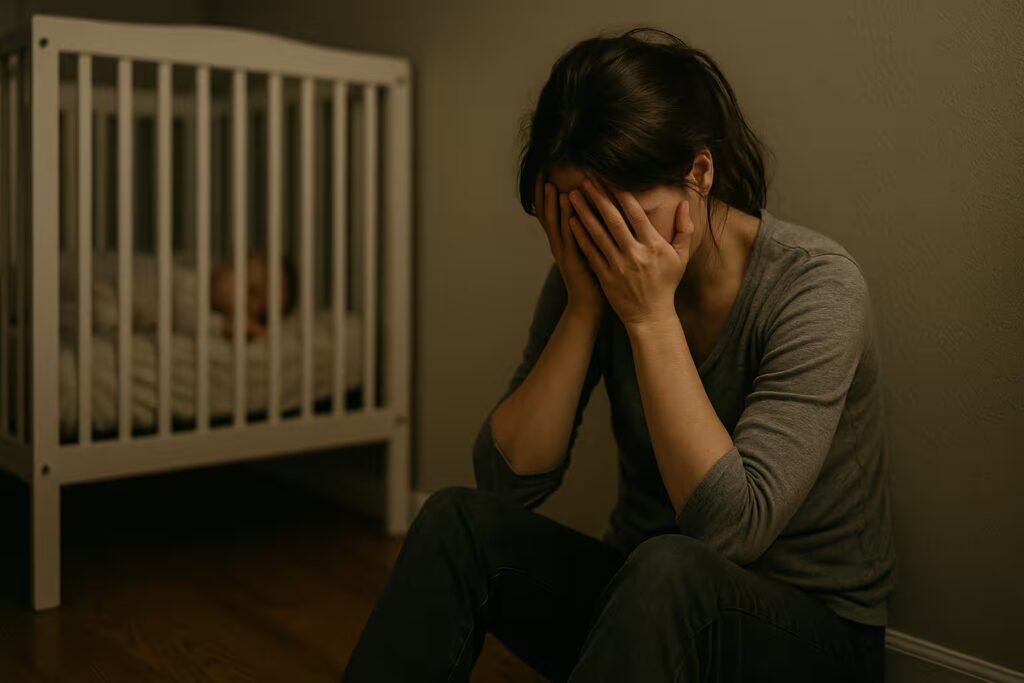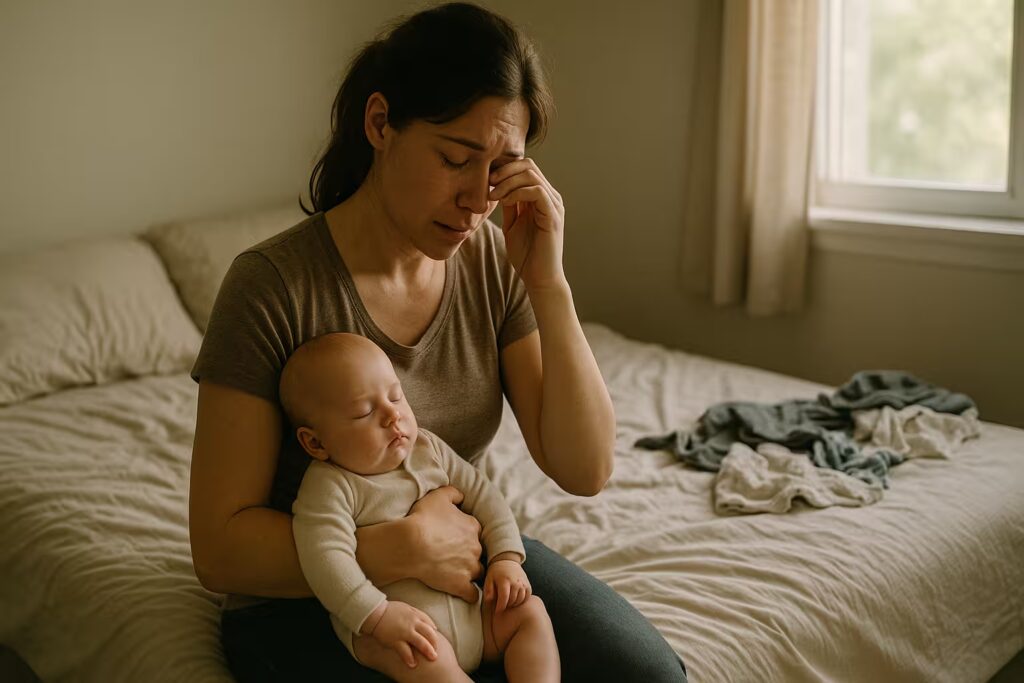Postnatal Depression & Anxiety – How to Handle It Without Falling Apart

Let’s not sugarcoat it. Becoming a mum can crack you wide open. And while everyone’s busy admiring your baby, you might be quietly falling apart inside.
Postnatal depression and anxiety don’t always look like what you’d expect. It’s not just crying every day (though that happens). It can feel like constant dread, numbness, rage, or thinking you're the worst mum on earth — even when you’re doing everything “right.”
So if you’re wondering how to actually handle it, here’s what matters most: you don’t have to fix this alone. And you’re not broken.
What Postnatal Depression & Anxiety Feel Like
First, let’s get clear on what we’re talking about.
Postnatal depression might feel like:
- Feeling flat, hopeless, or numb most days
- Crying often or feeling nothing at all
- Struggling to bond with your baby
- Thinking you’re not good enough
- Feeling like you're failing even when you're trying so hard
Postnatal anxiety can show up as:
- Racing thoughts or constant worry
- Not being able to relax, ever
- Panic attacks or feeling like you can’t breathe
- Obsessively checking things (like if your baby’s breathing)
- Fear that something bad is going to happen all the time
These can happen on their own or together. And they’re common. We're talking about 1 in 5 mums. That’s a lot of us.
Step One: Stop Pretending You're Fine
If you’re putting on a brave face every day while silently unraveling, it’s time to stop performing and start getting support.
You don’t need to hit rock bottom before you ask for help. If you’re struggling to enjoy anything, constantly anxious, or just feel off — that’s enough.
Step Two: Tell Someone You Trust
This can feel terrifying, but it’s powerful. Talk to your partner, a friend, your GP, or your maternal child health nurse. You don’t have to have the right words — even saying “I’m not coping” is enough.
If the first person doesn’t take you seriously, try again. Your mental health deserves more than a pat on the shoulder and “you’ll be fine.”
Step Three: Find the Right Support
There’s no one-size-fits-all fix, but here are options that help:
- Therapy – A psychologist or counsellor trained in perinatal mental health can help you untangle the mess in your head.
- Medication – If your brain chemistry’s off balance, no amount of positive thinking will fix it. Antidepressants can help, and many are safe to take while breastfeeding.
- Peer support – Talking to other mums who get it is a game changer. PANDA’s support line or local mums’ groups can be a lifeline.
- Practical help – Food deliveries, someone watching the baby so you can nap, someone else booking the damn doctor’s appointment — it all counts.
Step Four: Do the Tiny Things That Help
When you’re deep in it, self-care doesn’t look like spa days. It looks like:
- Drinking water before coffee
- Eating something that isn’t toast crusts
- Walking around the block just to get outside your own head
- Saying no without guilt
- Letting yourself rest without “earning it”
It’s not about fixing everything. It’s about finding a bit of solid ground in the storm.
Step Five: Let Go of the “Perfect Mum” Lie
You don’t need to be glowing or grateful or “making the most of every moment.” That’s Instagram nonsense. Real motherhood is messy. Some days are beautiful. Some days are survival. Both are valid.
What matters is showing up, even imperfectly. That’s enough. You are enough.
Resources for Support (Australia)
- PANDA (Perinatal Anxiety & Depression Australia) – 1300 726 306
- Beyond Blue – 1300 224 636
- Lifeline (24/7) – 13 11 14
- COPE (Centre of Perinatal Excellence) – cope.org.au
- Your GP or maternal child health nurse
You’re Not Alone, And You Don’t Have To Stay Stuck
It’s okay if you’re not loving every minute. It’s okay if this season is heavier than you imagined. Getting help isn’t giving up — it’s choosing to stay in the fight for your own wellbeing.
You deserve joy too. And it’s coming. One tiny step at a time.
Have you walked through postnatal depression or anxiety? What helped you come out the other side? Share your story in the comments — someone else might need exactly what you have to say.






[…] the good ones? There’s zero shame in reaching out to your GP or a perinatal mental health team. Postnatal depression and anxiety are common, treatable, and absolutely not your […]